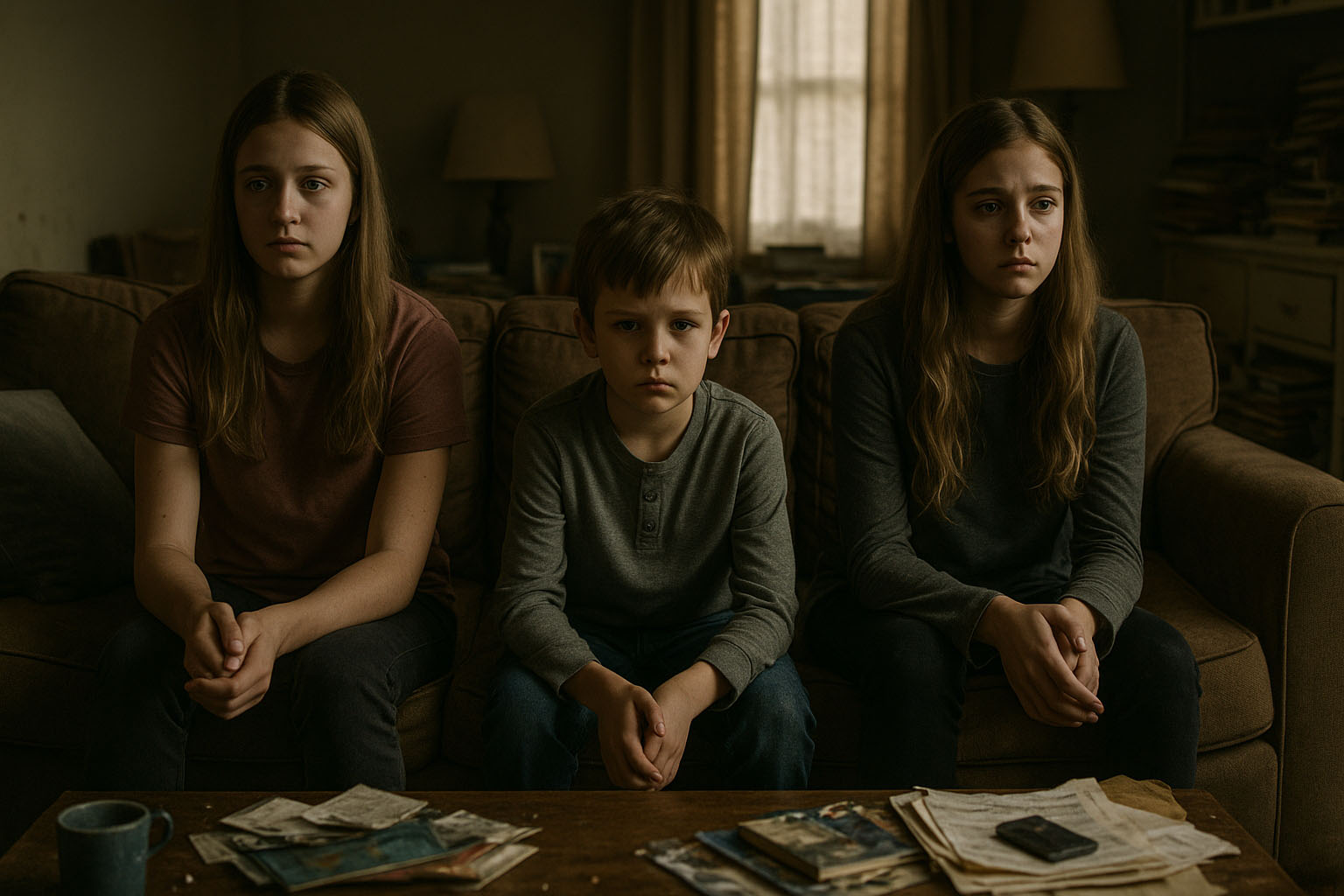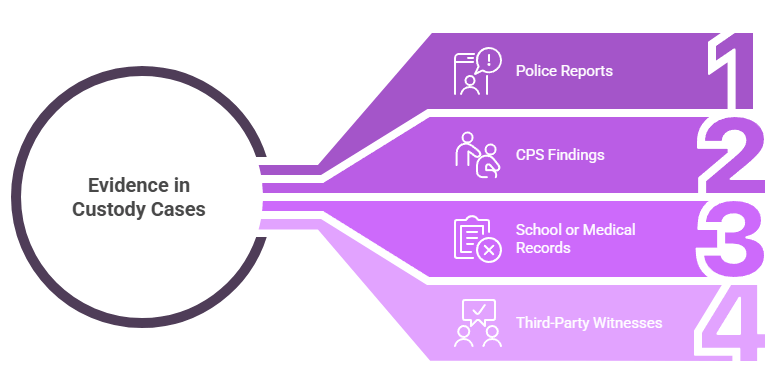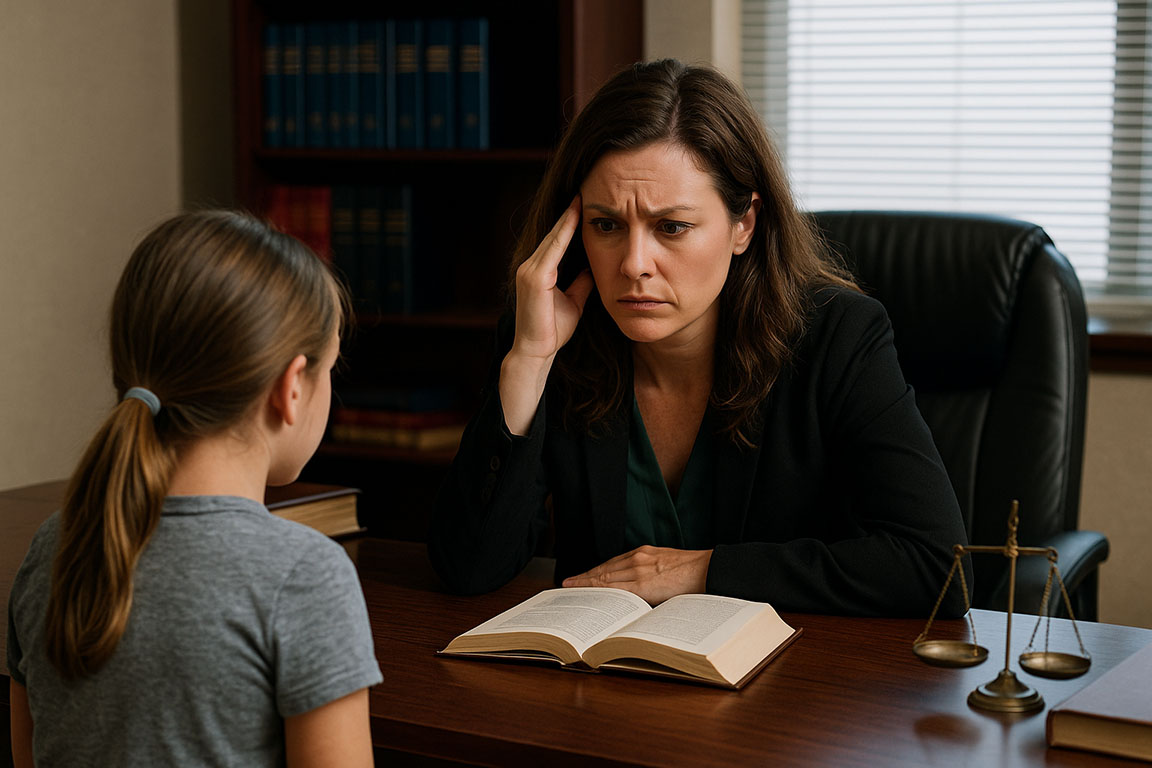When “Narcissist” Becomes Noise: Why Kids Who Need Protection Are Being Overlooked
As a San Antonio child custody lawyer, I’ve seen trends come and go in Texas courts. Lately, one thing keeps me up at night: protecting kids is harder than it used to be. Not because the abuse is less real, but because the word abuse itself is getting watered down.

Social media has given us a vocabulary – narcissist, toxic, gaslighter – but in the courtroom, those labels don’t win cases. Judges aren’t scrolling TikTok; they’re looking at evidence. And when every other parent throws around the word “narcissist,” the children who are truly living with danger – the ones who have seen a parent choked or beaten – risk being overlooked.
This isn’t just theory. It’s something I’ve seen play out in San Antonio custody cases time and again. Parents who desperately need protective orders or custody modifications can lose credibility because the system has become numb to overused claims.
The Difference Between Conflict and Abuse
Here’s the truth: not every high-conflict divorce equals abuse. Many parents fight, yell, or behave selfishly – and while it’s painful, that isn’t always enough to restrict custody.
Under Texas Family Code § 153.004, a judge must consider evidence of family violence before deciding custody. But if the only “evidence” is that one parent is difficult, dramatic, or “toxic,” the court may not act. That’s why parents who focus too heavily on labels instead of facts often leave the courtroom disappointed.
The Buzzword Problem
Social media has made everyone a self-taught psychologist. One viral video and suddenly every bad breakup is a case study in narcissistic abuse. I don’t doubt the pain people feel in those relationships, but the problem comes when that language is dragged into the courtroom.

Judges in Bexar County and across Texas hear these same buzzwords over and over: narcissist, subversive, manipulative, toxic. What happens? The words lose weight. When the courtroom is flooded with claims that every ex is a narcissist, the parent who’s actually dealing with domestic violence has a harder time being heard.
If you want to see how Texas courts actually approach these cases, I’ve written about co-parenting with a narcissist in Texas . The reality is that throwing the label around without solid evidence usually backfires.
The Real Victims
The tragedy is that kids in real danger are the ones who lose when buzzwords take over. I’ve represented children who’ve watched their mom get strangled in a fight, or who live with a parent whose drunken rages turn violent. These aren’t TikTok talking points – they’re life-threatening realities.

But here’s the problem: when every case sounds the same on paper, the serious ones get lost in the shuffle. The child who needs an emergency protective order in San Antonio may be competing with ten other cases where “abuse” was little more than name-calling or hurt feelings.
This is why evidence is everything. Police reports. Photos. Medical records. Witness testimony. Without it, the court may assume your story is just more noise. If you think you may need one, here’s more on how protective orders work in Texas .
How Judges See It
Family court judges hear hundreds of cases a year. They’ve become experts at spotting patterns – and unfortunately, they’ve also become skeptical when every custody dispute includes a “narcissist” claim.
That cynicism can make it feel like the court doesn’t care, but the truth is, they’ve been burned too many times by exaggerated or false allegations. Judges don’t want drama; they want proof.

In Texas, that means presenting clear documentation:
- Police reports showing violence.
- CPS findings.
- School or medical records confirming concerns.
- Third-party witnesses willing to testify.
Without that foundation, your claims risk being brushed aside. And if CPS shows up at your door, you’ll want to know exactly what to do and what not to do – because those moments can shape the entire custody case.
When CPS Gets Involved
Parents often panic when Child Protective Services knocks. But in reality, CPS reports can be the evidence that makes or breaks a custody case. According to the National Child Traumatic Stress Network (NCTSN), children exposed to domestic violence often show long-term trauma symptoms, which CPS is trained to identify.
That’s why CPS findings carry weight in court – they’re seen as independent, professional observations. If CPS is involved in your case, don’t go it alone. Work with a Texas family lawyer who understands the process and can protect your rights while making sure your child’s safety stays front and center.
What Parents Should Do Instead
If you’re in the middle of a custody battle and worried about your child’s safety, here’s the truth: buzzwords don’t win cases – evidence does. Judges in Bexar County and across Texas don’t want TikTok language, they want facts that can be backed up.
Here are the steps I give my clients:
- Document everything. Save text messages, emails, and voicemails that show threats or unsafe behavior.
- Call law enforcement when violence occurs. Police reports matter more than personal opinions.
- Gather third-party support. Teachers, doctors, neighbors – their testimony carries weight.
- Request medical or counseling records if your child has been affected by the abuse.
Parents often ask me about “malicious parent syndrome.” It’s real, and I explain it here: malicious parent syndrome in Texas . The key takeaway is that the more you can show patterns of harmful behavior, the stronger your case will be.
Why Having the Right Lawyer Matters
You only get one shot at protecting your child in court. Walk in unprepared, and you risk being dismissed as “just another custody fight.” Walk in with the right San Antonio custody attorney, and suddenly the court sees the difference between a TikTok buzzword and a genuine cry for help.
This is where experience matters. I’ve spent years in San Antonio family courts, and I know how judges think. I know the evidence they take seriously, the strategies that work, and the mistakes that can sink a case. My job isn’t just to fight for you – it’s to make sure the court sees the truth about your situation.
Final Note
The system isn’t perfect, and sometimes it feels brutally unfair. But your child’s safety is worth fighting for, and you don’t have to fight alone.
➡️ If you’re dealing with abuse concerns in your custody case, don’t wait until it’s too late. Schedule a free consultation with Brandi Wolfe Law today and let’s talk about how to protect your children.
Supporting Literature
The points above aren’t just my opinion – they’re backed by research and Texas law. If you’d like to dig deeper, here are a few helpful resources:
- Texas Family Code § 153.004 – Family Violence and Custody (Texas Legislature Online)
- National Child Traumatic Stress Network (NCTSN): Impact of Domestic Violence on Children
- U.S. Department of Justice: Domestic Violence and Child Custody
- National Council of Juvenile and Family Court Judges: Family Violence and Custody Resources

